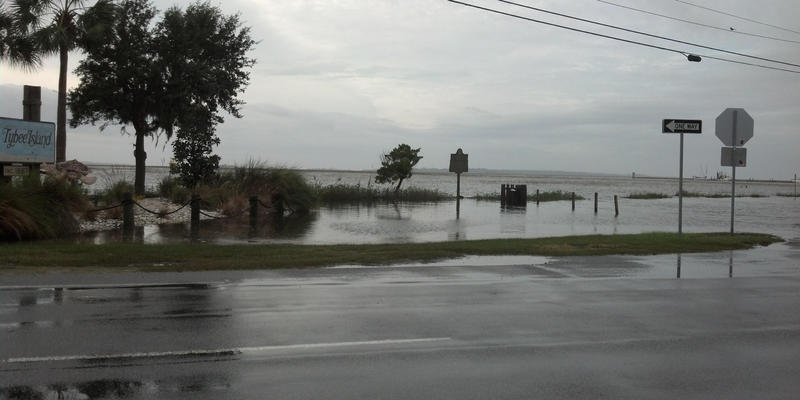Atlanta’s Population Could Rise With Sea Levels

The highest tides at Tybee Island cause flooding, and sea level rise will make it happen more frequently.
Courtesy of Tybee Island Police Department
The sea level is already rising on American coasts. In Georgia, the sea level has gone up more than nine inches in the last 75 years. Globally, it could go up another one to four feet in the next 75 years.
Some places and people will be able to adapt to rising tides. But a lot of people in the United States will have to move, and many could end up in Atlanta, according to a new study.
Demographer Matt Hauer said it makes sense to start planning now, even though the end of the century seems like a long way off. According to his research, more than 13 million people could have to move from low-lying coastal areas in the U.S. by 2100.
A lot can change by the end of the century, but part of it is beginning to think about long-range strategic planning now, he said.
Hauer’s analysis, published in the journal, “Nature Climate Change,” suggests that around 250,000 people, or more, could end up coming to Atlanta. It’s the third-biggest destination out of all the cities in the country in his study, after Austin and Orlando.
Hauer, who recently finished his doctorate at University of Georgia, used information from the IRS to look at where people have moved, and projected that forward.
“It’s really not surprising that Atlanta would pop out since Atlanta is already a destination and has been a destination for a number of years, as far as migration goes,” he said. “Has a great climate, it’s got a great cost of living.”
He said he wants to highlight that sea level rise isn’t only a coastal issue, because the places where people move will have to have the infrastructure and the resources to handle them.
This wouldn’t be the first time residents of low-lying coastal areas took refuge in Atlanta: In 2005, about 100,000 people came here following Hurricanes Katrina and Rita.






